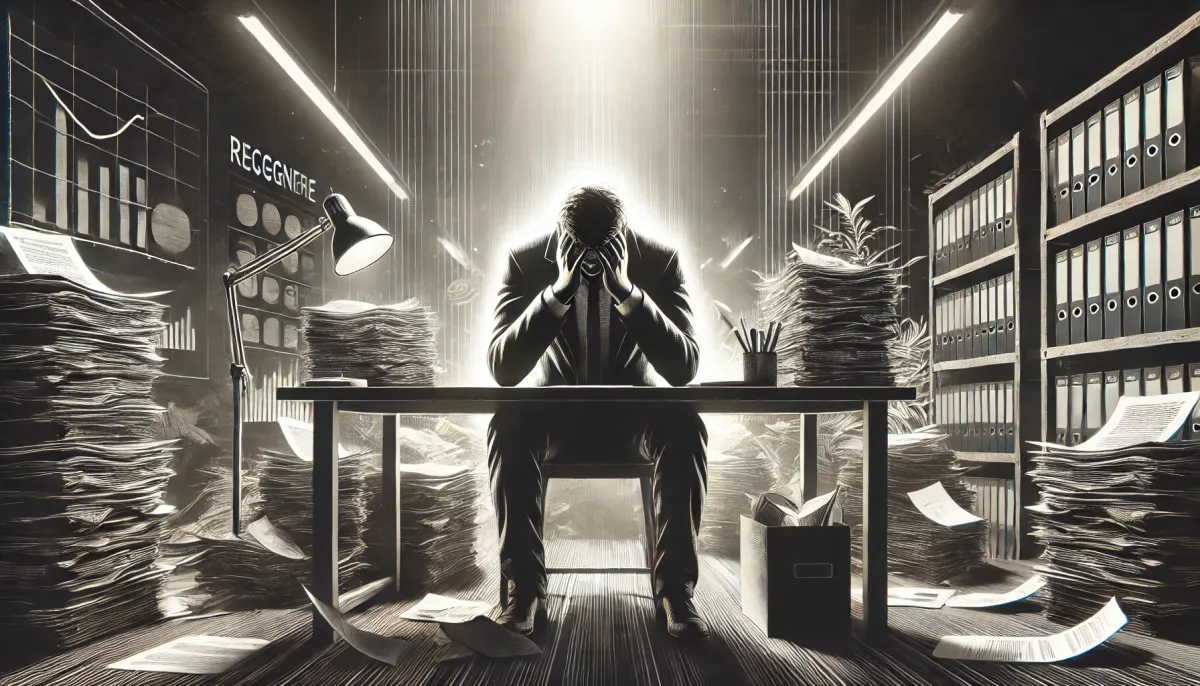Founder Burnout: Founder Burnout Symptoms, Recovery, and Prevention - A CEO's Journey

This article is based on a conversation on the podcast Founders Weekly. Please find a link to the podcast at the bottom of this article.
The Silent Crisis in Entrepreneurship
Burnout among founders is more common than we'd like to admit. According to Deloitte, 77% of professionals have experienced burnout at their current job, with founders being particularly vulnerable due to the intense pressures of building and scaling companies.
A CEO's Story: When Success Leads to Burnout
Oscar Werner's journey as CEO of a rapidly growing public company showcases how success can sometimes come at a personal cost. Under his leadership, the company grew from $300 million to $3 billion in revenue and expanded from 300 to 4,000 employees in just four years. Despite this remarkable success, the combination of high workload, emotional stress, and deteriorating sleep patterns eventually led to burnout.
Founder Burnout Symptoms Early Warning Signs
Behavioral Changes:
- Avoiding decision-making
- Decreased motivation for previously enjoyed activities
- Withdrawal from social interactions
- Difficulty with basic tasks and logical reasoning
- Changes in personality or typical behavior
Emotional Signals:
- Increased anxiety about work
- Loss of motivation
- Desire for isolation
- Emotional exhaustion
- Negative sentiment override (seeing everything negatively)
Physical Symptoms:
- Sleep disturbances
- Constant fatigue
- Difficulty focusing
- Racing thoughts, especially at night
- Physical exhaustion
Why Founders Often Miss the Signs
- Gradual Onset: Burnout typically sneaks up slowly, making it hard to recognize
- Success Paradox: High achievement can mask developing problems
- Ingrained Habits: The very traits that lead to success (persistence, resilience) can prevent acknowledging burnout
- Misconceptions: Believing you can "power through" or that taking breaks shows weakness
The Recovery Process
Immediate Actions:
- Seek professional help (therapist/psychologist)
- Address sleep issues (potentially with medical support)
- Step back from operational duties
- Create space for recovery
Recovery Components:
- Professional Support:
- Regular therapy sessions
- Cognitive behavioral therapy
- Stress management techniques
- Physical Well-being:
- Regular exercise (for feeling good, not achievement)
- Proper sleep hygiene
- Mindfulness practices (45 minutes daily recommended)
- Emotional Healing:
- Reconnecting with family
- Rebuilding emotional bank account
- Practicing self-compassion
Prevention Strategies for Founders
Daily Practices:
- Regular exercise and movement
- Mindfulness or meditation
- Time with family and loved ones
- Clear boundaries between work and personal life
Professional Practices:
- Regular check-ins with mentors or advisors
- Building strong support systems
- Creating clear role definitions
- Delegating effectively
Mental Health Tools:
- Develop stress management techniques before they're needed
- Build relationships with mental health professionals proactively
- Practice regular self-reflection
- Maintain work-life boundaries
Returning to Leadership
Recovery isn't just about getting better—it's about coming back stronger. After 15 months of focused recovery, Oscar returned to his role as a CEO with:
- Better understanding of personal priorities
- Improved decision-making abilities
- Enhanced emotional awareness
- Stronger boundaries
- More sustainable work practices
Key Takeaways for Founders
- Act Early, Act Decisively:
- Don't wait for crisis point
- Take strong action at first signs
- Consider temporary leadership changes if needed
- Build Prevention Tools:
- Develop mental health practices before they're needed
- Create strong support systems
- Maintain regular check-ins with mentors and professionals
- Listen to Your Support System:
- Pay attention to feedback from family and friends
- Take seriously concerns raised by those close to you
- Don't dismiss emotional or physical warning signs
Conclusion
Burnout isn't a sign of weakness—it's often the result of prolonged success without adequate support systems. The key is recognizing the signs early, taking decisive action, and building sustainable practices that prevent burnout from occurring in the first place.
Remember: The skills that build a successful company aren't always the same skills needed for personal well-being. Sometimes, the most productive thing you can do is stop "doing" and focus on "being."
Listen to the full conversation on the Founders Weekly podcast
